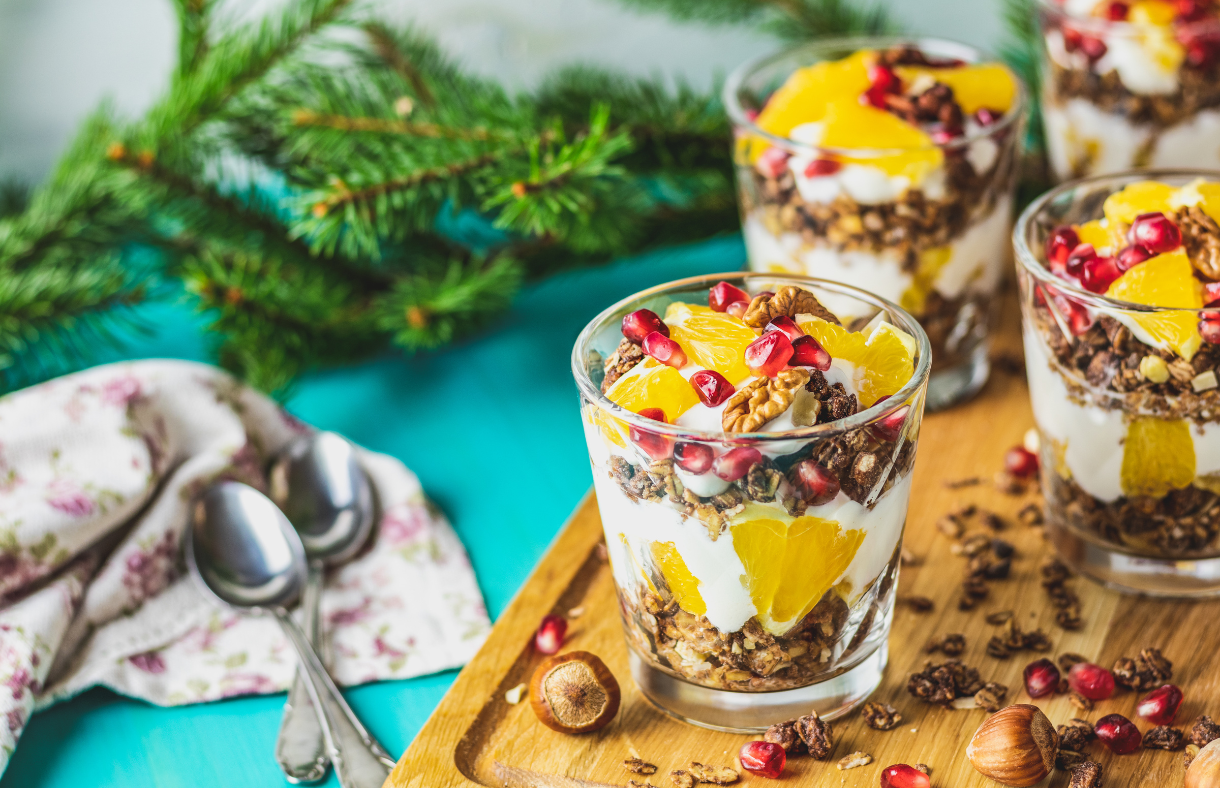Ask most people to write down their favorite winter-holiday activities, and the list will include at least one item involving something edible. Chestnut latte. Chocolate truffles. Cranberry jelly. Eggnog. Fruitcake. Mashed potatoes. Peppermint bark. Pumpkin pie. Stuffed turkey. Most of it is as fattening as it is luscious, but who cares: ’tis the season for self-indulgence, and there’ll be time to work off the gained weight in January.
However, some holiday-food concerns go beyond unneeded pounds, even beyond kids stuffing themselves sick. What if you have a family member who not only hates marshmallows, but replies “YUCK!!!” at broadcast-level volume when offered one for her hot chocolate? Worse, what if someone becomes literally ill if they taste chocolate?

Certain disabilities can leave a person feeling painfully left out when everyone else is merrily munching.
- Allergies: Did you know that many schools no longer allow the classic peanut butter sandwich in brown-bag lunches, for fear of exposing students with severe peanut allergies? Other common food allergies include chocolate, eggs, milk, shellfish, and soy—any of which might turn up on a holiday buffet table or be hidden in a recipe. Potential allergic reactions range from fairly mild (hives, nausea) to life-threatening (a swollen throat blocking the airway).
- Autism: While people with autism may be prone to physical food sensitivities, a more common problem is personal aversion to certain tastes and textures, combined with lack of behavioral inhibitions. A child may make a scene if served the “wrong” food; an adult may sulk for the rest of the party.
- Celiac disease: Anyone with this condition has to eat a completely gluten-free diet (nothing that includes wheat or certain other grains) or risk permanent intestinal damage.
- Diabetes: Specific healthy-eating needs vary between individuals, but diabetes inevitably means having to mind one’s sugar and processed foods.
- Obesity: Especially morbid obesity, which means body mass index at least 1.6 times the healthy maximum. While fattening foods are unlikely to trigger a health crisis on the spot, they perpetuate a problem that multiplies the risk factor for all sorts of serious health issues.
- Substance use disorder: Commonly known as drug addiction or alcoholism. Whether or not someone with this disorder has an active using problem, any sight or smell of alcohol-containing beverages may trigger dangerous overdrinking, immediately and for the longer term.

What to Do about It
The good news: If reasons for dietary restrictions are many, so are options for enjoying the holidays in spite of them.
- Have your doctor clarify details on what can and can’t be consumed. Specific requirements—including whether a food is to be avoided completely or consumed in limited amounts—vary from condition to condition and person to person.
- Find healthy alternatives to “forbidden” holiday treats. The apps below can help; plus, any Google or library search can find multiple cookbooks’ worth of recipes for specific health needs.
- If you’re invited to someone’s home for a celebration, it’s perfectly acceptable to explain your concerns and ask about specific dangerous ingredients that might be in the foods served. (Don’t ask for a whole separate meal: that oversteps the boundaries of etiquette for private homes.) If they aren’t sure (as may be the case if food is catered or prepared from store-bought mixes), you can eat only the foods you know are safe, or come for just part of the party and eat your own food at home.
- For public events, bring your own food unless you’re familiar with the vendors. Remember, an empty stomach plus treats at every turn (especially if they’re being offered free of charge) equals temptation to take dangerous risks.
- Focus on what you can enjoy rather than fretting over what you can’t. With or without special needs, the holidays are about music, togetherness, decorations, spiritual blessings, and many other things besides food.
Some helpful apps for finding and organizing recipes that suit your family’s health needs:

